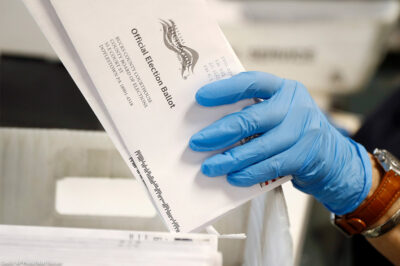
Starting on October 1, millions of Americans will begin applying for health care coverage through health insurance exchanges created under the Affordable Care Act; in New York State alone, an estimated 2.8 million uninsured will access the system. The State Board of Elections, in collaboration with Governor Andrew Cuomo, demonstrated its commitment to the voting rights of all New Yorkers by announcing that its exchange will also operate as a voter registration agency.
The potential impact of this policy cannot be overstated. Nationally, approximately one-third of those without health insurance also are not registered to vote. Applied to New York, this means that nearly a million eligible voters will have an opportunity to vote and have their voices heard.
This makes New York the second state—with California paving the way—to offer voter registration to Americans signing up for health insurance. This important win for democracy didn’t just come out of nowhere. Congress enacted the National Voter Registration Act of 1993, also known as the “motor voter law,” to make voter registration more accessible. The law requires DMVs, public assistance offices, agencies offering services to people with disabilities, and other governmental agencies to offer voter registration. In New York, NVRA voter registration agencies include veterans’ aid offices, universities, and now, health insurance exchanges.
Because voting is essential to our democracy, the ACLU calls on all states with state-based exchanges to follow California and New York’s lead—and the law—and incorporate voter registration as part of the health insurance application process. States should take advantage of this unprecedented opportunity to expand access to millions of eligible voters.
Learn more about voting rights and other civil liberty issues: Sign up for breaking news alerts, follow us on Twitter, and like us on Facebook.


